THIS YEAR’S SUMMER SCHOOL FOCUS:
COVERING POLITICAL CAMPAIGNS IN THE AGE OF DATA, ALGORITHMS & ARTIFICIAL INTELLIGENCE
24-28 June 2019 – FLORENCE, ITALY
European University Institute
Villa Salviati
Journalists serve as the watchdogs of democracy. In the era of data-driven voter profiling and micro-targeted political campaigns, plausible bots and automated disinformation, it is necessary for journalists to increase their comprehension of the application of AI in contemporary information production and dissemination. Doing so will not only preserve their role in society and protect the public interest but also extend toward safeguarding modern democratic elections.
This year’s 8th edition of the Centre for Media Pluralism and Media Freedom’s Summer School for journalists and media practitioners follows the European Parliament elections scheduled for May 2019. Hence, the School will provide an opportunity to thoroughly reflect on the campaign practices employed in the EP elections but will also provide general theoretical and practical training to journalists covering elections: equipping them with tools and skills to enhance their reporting and their understanding on how AI is being employed in political persuasion – so they can effectively evaluate emerging campaign practices and continue holding power to account. The topics covered at the training are also relevant for policy-makers, media authorities and other media practitioners.
This year’s Summer School will offer the opportunity to around 25 journalists and media practitioners from all over the world to step out of their daily routines and dive into an interactive learning environment in Florence at the European University Institute. The programme will be structured around interactive sessions with distinguished experts and scholars, complemented with hands-on workshops and exchange among participants.
Topics will include:
- Freedom of Expression, Free and Fair Elections, Pluralism and the Changing Media: Legal Perspectives
- Data Protection vs. Data Manipulation
- Information Disorder and Media Literacy
- Practice Day: Encryption, Verification, Automation
- Self-regulation and Ethics
DOWNLOAD THE SUMMER SCHOOL PROGRAMME
Hear from last year’s Summer School speakers about what the Summer School is all about
PRESENTERS:
Academics affiliated to CMPF and renowned experts and journalists. Names of speakers will be added to the webpage on a rolling basis over the coming weeks. You can find last year’s programme here.
Confirmed speakers
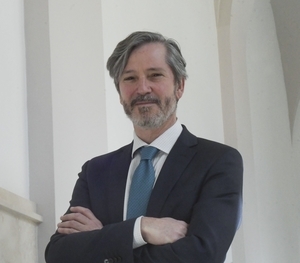 Giuseppe Abbamonte
Giuseppe Abbamonte
Director – Media Policy European Commission – DG for Communications Networks, Content and Technology
I have been the Director for Media Policy since 1 July 2016. The Directorate is in charge of the copyright regulatory framework, the Audio Visual Media Services Directive, the programme MEDIA providing financial support to the audiovisual industry and the European strategy on countering online disinformation.
Before then I was at the head of the Directorate responsible for the elaboration of the European Data Strategy.
In my former positions, I was the head of the electronic communications policy unit and then of the cybersecurity and on-line privacy unit. As part of the latter job, I supervised and directed the elaboration of the European Cybersecurity Strategy and of a proposal for a European law on network and information security. I have extensive proven experience in handling complex merger cases and in consumer law.
Before joining the Commission I was an associate in an international law firm in Milan for four years (1989/1992), where I dealt mainly with commercial law and competition law.
I’m the author of several publications mainly in English law magazines.
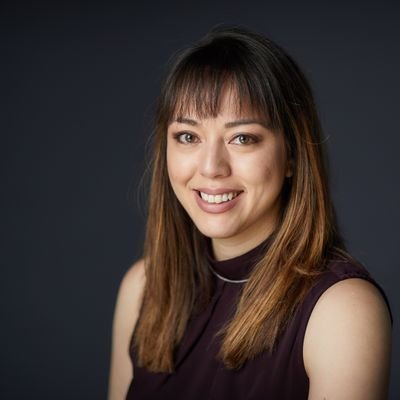 Samantha Bradshaw
Samantha Bradshaw
Samantha Bradshaw is a D.Phil. candidate at the Oxford Internet Institute. She is also a Researcher on the Computational Propaganda Project at Oxford University, and a Senior Fellow at the Canadian International Council. Samantha’s work examines government use of social media for coordinated digital disinformation campaigns. Her research has been featured by numerous media outlets, including the Washington Post, Bloomberg, and the Financial Times. She holds an MA in global governance from the Balsillie School of International Affairs, and a joint honors BA in political science and legal studies from the University of Waterloo.
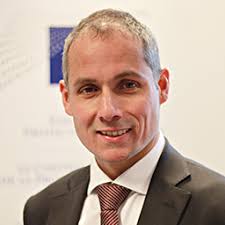 Christian D’Cunha
Christian D’Cunha
Christian is the head of the Private Office of the European Data Protection Supervisor, advising on EU legal and policy developments, strategic planning and communications. He led the project on strengthening the enforcement of privacy, competition and consumer law in the digital economy and society, including the setting up the Digital Clearinghouse as the first such cross-sectoral forum for regulators. He has also prepared EDPS opinions on digital ethics and data protection reform. He previously worked in the European Commission, for Lord Chief Justice of England and Wales, the Chairman of the UK Labour Party and to the Leader of the UK House of Lords.
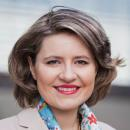
Anna Herold
Anna Herold is currently Head of the Audiovisual and Media Policy Unit at the European Commission. She was previously Member of Cabinet of Günther H. Oettinger, European Commissioner responsible for Digital Economy and Society. Prior to that, she was Assistant to Deputy Director-General of DG Communications Networks, Content and Technology of the European Commission, Roberto Viola. She has worked for the European Commission since 2003, dealing with media, audiovisual and telecoms policy as well as competition law. Anna holds a PhD in Law from the European University Institute in Florence and has written on media law and policy, international trade and competition law.
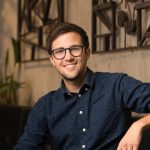 Cornelius Hirsch
Cornelius Hirsch
Cornelius Hirsch is POLITICO’s Intelligence Analyst and the co-founder of pollofpolls.eu, a polling data website acquired and integrated into POLITICO’s European Election hub. Pollofpolls offers professional polling aggregations for all upcoming national elections in Europe and a seat tracker model for the 2019 European Parliament election.
A political news and data enthusiast from an early age, Hirsch enrolled at the Vienna University of Economics and Business (WU Wien) for a Ph.D. program in Economics and Social Sciences focusing on international trade, globalization and its interrelation with rural areas. Hirsch holds an MA in agricultural economics from Humboldt-University Berlin and a BA in economics from the Free University Berlin.
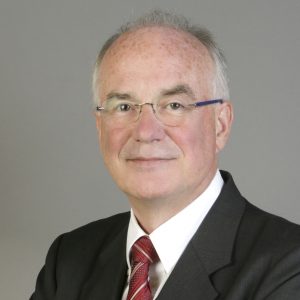 Bernd Holznagel
Bernd Holznagel
Bernd Holznagel is a professor for Constitutional Law, Administrative Law, European Law and Administrative Sciences at the University of Münster in Germany.
He studied law and sociology in Berlin and passed his first state exam in law in 1984. After postgraduate LL.M.-studies at McGill University (Law School) in Montreal, Canada, he received his Ph.D. at the University of Hamburg (1990) and passed the second state exam in law in 1991. He finished his habilitation at the University of Hamburg (1995). The habilitation (“Broadcasting Law in Europe. The Path to a Common Law in the European Broadcasting System”) won a special award issued by the European Group of Public Law during its Spetses Reunion in 1996.
Holznagel is chairman of the academic advisory council of the Bundesnetzagentur ( Federal Network Agency for Electricity, Gas, Telecommunications, Post and Railway).
His research interests include Public Law and Regulatory Law (Media, Telecommunication, Energy, Data Protection /Security, State Aid Law). In fall 2018 he will teach the “European Law” Course at the Law School of Virginia (Charlottesville).

Gabriela Jacomella
Gabriela Jacomella is a Policy Leaders Fellow at the EUI’s School of Transnational Governance, focusing on disinformation and transnational policies. After her MA in Literature at Scuola Normale (Pisa), she worked for 9 years as a reporter for Corriere della Sera (with a break as a fellow at the Reuters Institute in Oxford) before moving to South Sudan to train local journalists. In 2013, when conflict broke out in the country, she moved back to Italy. In 2016 she co-founded Factcheckers.it, a no profit association for educational fact-checking. In 2017 she published f Il Falso e il Vero (Feltrinelli).
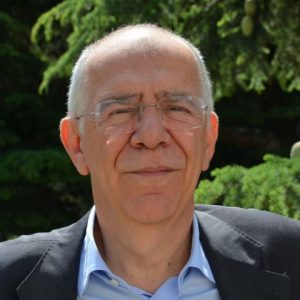
Pier Luigi Parcu
Pier Luigi Parcu is part-time Professor at the European University Institute (EUI) from 2010. He is currently Area Director of the FSR Communications & Media, Director of the Centre for Media Pluralism and Media Freedom and Director of the Florence Competition Programme in Law and Economics.
As regards research in the media and Internet areas, Professor Parcu’s interests focus on the effects of ownership concentration and internal governance of the media enterprise on pluralism and freedom of expression and on the influence of offline business models on new economic developments related to online platforms, smart cities and artificial intelligence.
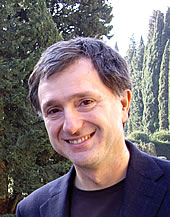 Giovanni Sartor
Giovanni Sartor
Giovanni Sartor is part-time professor in legal informatics at the University of Bologna and part-time professor in Legal informatics and Legal Theory at the European University Institute of Florence. He obtained a Ph.D. at the European University Institute (Florence), worked at the Court of Justice of the European Union (Luxembourg), was a researcher at the Italian National Council of Research (ITTIG, Florence), held the chair in Jurisprudence at Queen’s University of Belfast (where he now is honorary professor), and was Marie-Curie professor at the European University of Florence. He has been President of the International Association for Artificial Intelligence and Law. He has published widely in legal philosophy, computational logic, legislation technique, and computer law.
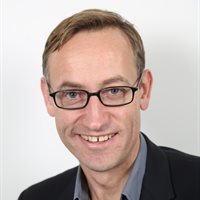 Damian Tambini
Damian Tambini
Damian Tambini is Research Director and Associate Professor in the Department of Media and Communications of the LSE, and head of the MSC in Communication Governance. Damian is also an Associate Fellow at the Institute for Public Policy Research and at the Oxford Internet Institute.
He serves on the Editorial Commission for the Open Society Foundation’s Mapping Digital Media Project and the UK Board of Reporters Without Borders.
Between 2002 and 2006 he directed Oxford Universtity’s Programme in Comparative Media Law and Policy. Damian has authored numerous articles and books on media law and policy and political communication.
PRESENTATIONS:
- Social media manipulation: algorithms, bots and computational propaganda – Samantha Bradshaw
- Is the algorithm reliable? The collaboration between technology and humans in the fight against hate speech – Federica Casarosa
- Digitisation, democracy and the regulation of personal data use for political purposes – Christian D’Cunha
- Press publishers’right: expanding copyright on news and information on the internet – Ula Furgal
- Governing Communication Online: German Perspective – Bernd Holznagel
- Strengthening news media in the digital era: the EU approach – Anna Herold
- Polling data to assess election campaigns: Why polling aggregation helps you avoid cherrypicking polls and falling for outliers – Cornelius Hirsch
- Fact-checking in the newsroom: best practices, open questions – Gabriela Jacomella
- How to make the perfect citizen: China’s social credit system – Wessel Reijers
- Cryptoparty: encryption and data protection for journalists – Luc Steinberg
- Journalism, Democracy, and the New Political Campaigns – Damian Tambini
PHOTO ALBUM
View photographs of the Summer School for Journalists here.
PARTICIPANTS:
The Summer School is open to early and mid-career journalists and other stakeholders in the news industry. We aim to have participants from a variety of countries and backgrounds but scholarships will be available only to the participants from EU member states, accession and neighboring countries. The selection of participants will be made by the CMPF based on the information provided in the application form.
OUTCOME:
Shared knowledge of common European journalistic professional rights and rules; up-to-date overview of the legal principles governing content online; better understanding of regulation on data collection and processing for different purposes on national, EU and international level; better understanding of contemporary campaign practices; newest trends in news and political information consumption; analysis of the state of play of pluralism and freedom in the digital news environment; networking among participants and among participants and speakers.
A Certificate will be awarded to each participant who has successfully completed the training course.
The Summer School is organised by the Centre for Media Pluralism and Media Freedom (CMPF) at the Robert Schuman Centre for Advanced Studies of the European University Institute (EUI). The EUI is a renowned international institution, hosting a community of more than 1000 academics and policy-makers from over 60 countries. It is located on picturesque hills above Florence.
